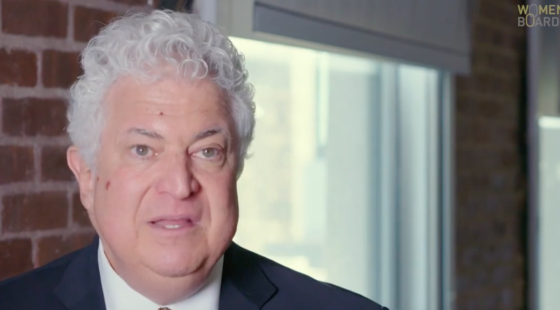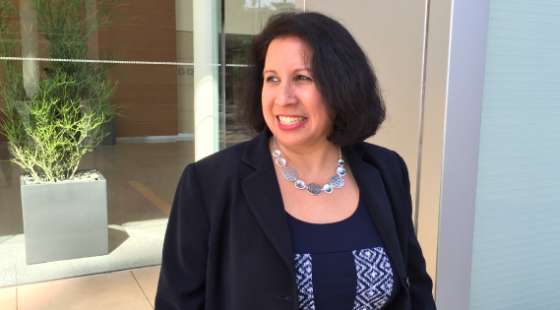
DENISE KUPRIONIS
President, The Governance Solutions Group
VIP Member, Women in the Boardroom
Member, Board of Advisors: Best Upon Request
Member, Board of Advisors: Affordable Languages
Board Chair, SC Ministry Foundation
Board Vice Chair, Kenwood Country Club
Denise’s keys to success:
- Discover, then pursue your passion. Jobs, careers and life are so much more fun when you are doing something you really want to do.
- Be nice to everyone. Nice doesn’t mean you can’t disagree, or be firm, or be a leader; it means you respect others.
- On finding that board seat: (a) Excel at what you do; (b) Build a powerful network of relationships, then use it; (c) Educate yourself through reading, seminars or courses on board governance issues; (d) Develop a clear articulation of what you bring to the board table.
Denise, how did your journey to the boardroom as a corporate director begin?
I first learned about the work of the board directors when I was in-house at a media company and was promoted to the position of corporate secretary. When I walked into my first board meeting, a director said, “there’s never been a woman in this room before.” While that may not have been welcoming, it was the truth as I was the company’s first woman officer and there were no woman directors. More importantly, it encouraged me to learn all I could and pushed me to add value at those meetings.
How did you get connected to your first board seat?
My first board seat was at a local nonprofit organization, my boss had recommended my participation. I’ve since served on many local and national nonprofit boards and committees, and have often been elected to chair the board. Today, I chair one nonprofit, serve on two private company boards of advisors, and serve on an association board.
What steps did you take to prepare for the board interview process that benefited you most?
The most important steps in preparing for a board seat take place long before the interview. You must be good at your day job, and understand how you can contribute in the boardroom. Preparing for the actual interview requires doing your homework; researching the company, and reading recent press releases, the proxy statement and the annual report. Also, be prepared to answer the questions, “what do you think are the most important skills you bring to our board,” and “what committees would you serve on?”
What characteristic or behavior did you exhibit that you believe was a critical factor in your successful candidacy for your first board appointment?
An important characteristic is genuine interest in the company or the organization. You must also understand why a board is extending an invitation, what they expect and what you can contribute.
How did you prepare – in every sense: emotionally, intellectually, practically – for your first board meeting and in what ways did that preparation pay off?
Your first board meeting will in many ways be the hardest meeting. Most often you don’t know your board colleagues, the management team, or how they work together. Board culture is very important. To help make the first meeting a “win,” you’ll want to have participated in a thorough board orientation from the company and meet with, or minimally have a phone call with, each director before the meeting to get a sense of who they are and how meetings flow. And, of course, thoroughly review all the “pre-meeting” materials. At the meeting, you’ll want to contribute and ask questions, but don’t come in with a “know-it-all” attitude, remember to listen.
What has surprised you about the reality of board service versus the expectations that you had coming in – in a positive or maybe not so positive way?
This didn’t surprise me, but it’s important to note that board service is about teamwork. The board works together to empower management and oversee operations in order to create a stronger company and increase stakeholder value.
Help, hindrance or both – how does board service complement your professional career?
Board service helps you develop your professional career. If you are an executive who has her own board meetings to navigate, it’s helpful to see how it works at another company.
What is your favorite thing about being a board director? Least favorite thing?
Favorite thing- the board dinners. Well, just kidding about that, but they are nice – it’s a terrific way to get to know one another and build those trusting relationships. But the best thing about serving on a board is you can help the board to help management, to govern better, to create a stronger company.
How do you feel you are making a difference as a board member?
Every board member should be a fully participating contributor. If not, he or she shouldn’t be sitting at the table. Also, the board must annually review its own effectiveness and how it does its work.
What one thing do you wish you knew before you started your board journey?
In my work, long before I thought I would want to, or be qualified to serve on a board of directors, I met many exceptional executives – just as most people do. You talk with these professionals over the course of a work period and then lose touch. I encourage women to stay connected with some of these individuals, maybe it’s occasionally dropping them an article that you think he or she might be interested in. Or simply saying hello. When you are ready to pursue a board seat, this professional network is valuable.
What is the ONE essential piece of advice you’d give to other senior-level executive women who are on a journey to their first seat at the table?
Don’t be afraid to tell colleagues, particularly colleagues that are sitting on boards, that you are interested in board work.
What is your favorite leadership quote that has inspired you on this journey? – this could be your own personal mantra!
“You miss 100 percent of all the shots you never take.” – Wayne Gretzky
Denise Kuprionis founded The Governance Solutions Group, a board advisory practice, in 2010. Through her work, she shares the knowledge she has gained from her 25 years in public, private and nonprofit boardrooms. Denise’s practical understanding of how boards work allows her to engage directors and help them adapt effective governance practices that fit within their unique board frameworks. Denise helps public companies, private companies and nonprofit organizations break down the complexity of good board governance and helps directors consider, “how do we do what we do,” and “how can we be more effective today than we were yesterday?”
Views From The Boardroom is an exclusive series from Women In The Boardroom, where corporate board directors share their experience, insight and wisdom and their view from the boardroom. Corporate board directors interested in participating should email bdust@womenintheboardroom.com.
The opinions and experiences expressed by the interviewees do not necessarily reflect those of Women in the Boardroom.






